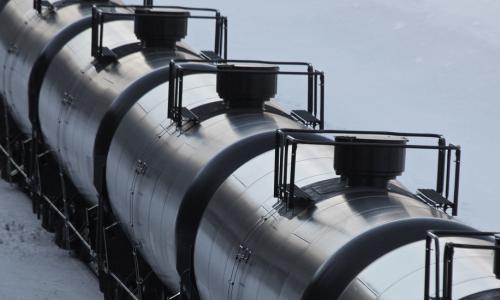We love oil—and it hurts
Oil accounts for more than 95 percent of all the energy used for transportation in the United States. That means oil powers virtually every mile we drive. And we drive a lot of miles—three trillion miles annually.
This immense amount of travel, together with our near total reliance on petroleum for fuel, means that every year the United States must obtain nearly 5 billion barrels of oil just to meet the needs of our current transportation system—and the number of vehicles and miles driven are both expected to rise in the decades ahead.
Only oil companies and a handful of foreign countries benefit from this trend. Everybody else loses out.
There’s a better, cleaner way to power the country’s transportation system. By increasing the use of clean biofuels and creating the next generation of advanced vehicles that no longer rely exclusively on oil, we can decrease our reliance on petroleum for fuel. And by improving the fuel efficiency of our cars and trucks, we can dramatically reduce the amount of oil we need in the first place.
Oil is getting worse
Oil production has significant downsides, no matter where it occurs—and these problems will only get worse as oil becomes more difficult and costly to acquire.
Much of the world’s “easy” oil has already been found and extracted, forcing us to rely on increasingly dirty, dangerous, and expensive sources to meet our oil needs. It’s a trend that’s already well underway, with serious consequences for our health and environment.
Deepwater drilling in the Gulf of Mexico resulted in the worst US oil spill in history in 2010. Oil produced from Canada’s tar sands generates significantly more global warming emissions per barrel compared to conventional sources. As oil companies scrape the bottom of the barrel for such dirty, risky sources of oil, the problems—and costs—of oil production will only intensify.
We can reduce our need for such costly sources of oil by adopting clean vehicle and fuel technologies that dramatically lower our oil consumption. If we act now, we can cut the country’s projected oil use in half in the next 20 years.




